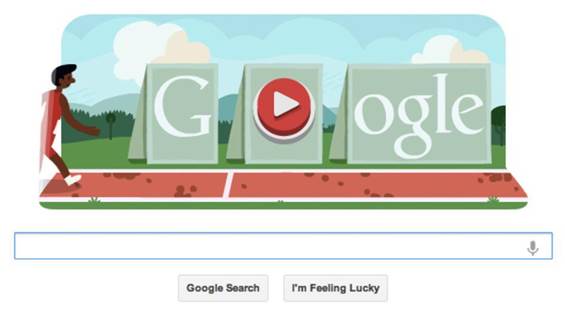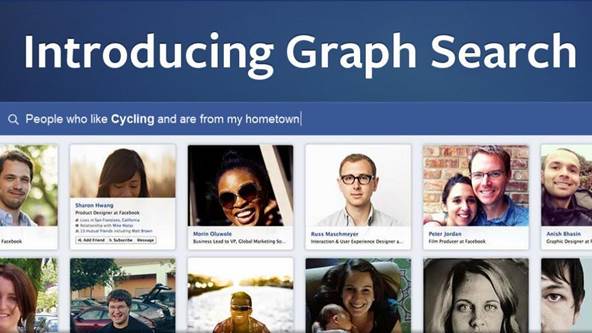Davey W. investigates privacy
concerns over Facebook’s Graph Search and finds them a trifle overwrought
Much has been written about Facebook taking
on Google, some of it from my own keyboard. The rumor mill swung into action
towards the end of last year, when Mark Zuckerberg said the social network was
already fulfilling a billion searches every day, that it is “uniquely positioned
to answer a lot of questions people have”, and that developers were working on
Facebook search.

Google
searches for the most popular pages as determined by the quantity of global
links
If you were expecting a standalone search
engine, however – a Google-beating enterprise, no less – then you’re about to
be disappointed. The end result of all that work on search within the depths of
Facebook HQ has started being rolled out in beta form and goes under the name
of Facebook Graph Search. It’s new, and it’s very interesting, since it down
stuff Google can’t do, but it sure isn’t all that controversial – at least not
when taken at face value (although you might be led to believe otherwise by all
the bad press it’s receiving from the privacy protection lobby).
I’m not quite sure why Facebook opted to
throw Zuckerberg’s favorite buzzword, “graph”, into the title of this resource,
because it doesn’t actually “graph” anything. What it does it make connections
between people, places, postings, photos and so on. Whereas Google searches for
the most popular pages as determined by the quantity of global links (among
other factors, but let’s try to keep it simple), Facebook uses its own Likes as
the hooks with which to retrieve search results.
Of course, that’s oversimplification. Graph
Search goes way further than merely creating charts of the most-liked things on
Facebook; it creates connections between those things and people you know,
people they know, the places they visit and the information they’ve divulged to
Facebook by way of their profile data.
So, for example, if I search on Google for
somewhere to eat in Sydney, I’ll receive a list of the most popular
restaurants. I can filter those results by being more precise with my search
string – so I could ask for somewhere to eat in a particular area of Sydney, or
a restaurant that serves a particular type of cuisine, but that’s pretty much
the limit as far as Google is concerned. Facebook, on the other hand, goes off
at a new tangent of search opportunities: what about restaurants your friends
have visited in Sydney, or those your married friends have visited, or
restaurants in Sydney they actually liked? It gets better: ask Facebook Graph
Search for restaurants nearby and, if you have location tracking turned on, it bases
hits on that data. You can also ask for photos taken by your friends at nearby
restaurants.

The
new Facebook Graph Search will be rolled out soon, but is it a really privacy
threat?
How well this works depends on a number of
things, not least how wide your social circle is and how many of your friends
use the check-in feature, location services or hit the Like button regularly.
One of the primary reasons, if not the
primary reason, for using a social network is to socialize – that is, to share
and exchange information. Facebook Graph Search takes this functionality into a
whole new realm by connecting you, via natural language search queries, with
other people based upon what they’ve shared, who they’ve shared it with, what
their interests are and so on. But the data searched, and the information
returned as a results, isn’t limited to only your friends; the friends of those
friends will be included (as well any Facebook member, for that matter) if
their data is relevant and they have their privacy options set accordingly to
allow such usage.
And this is the reason why, once again, a
Facebook “invasion of privacy” debate has kicked off so heatedly. Now, I might
have a modestly sized privacy bee flying around in my own bonnet, but getting
hot under my mixed-metaphorical collar about Facebook Graph Search isn’t
something I intend to do soon. For one thing, everyone you haven’t blocked on
Facebook has always been able to search for you on Facebook, so there’s no
change there. What those people can see about you as a result of their searches
will depend entirely on what’s shared with them, either as friends, friends of
friends, or members of the public – all options that are under your control as
determined in your privacy settings. Facebook Search continues to respect your
privacy settings, so why all the fuss now?

Everyone
you haven’t blocked on Facebook has always been able to search for you on
Facebook
The answer to that question appears to be
“Because Graph Search makes it easier to find stuff you might not want people
to see”, which isn’t a good reason to object. Are we really saying we want a
Facebook search engine that doesn’t work too well? I don’t think so: what we
should really be doing is praising Facebook for adding more functionality to
this free site that we all use of our own volition. Nobody is forcing anyone to
use Facebook against their will. The lesson to be learned is that privacy on
Facebook is, largely, in your control. Which takes us to the most basic of
privacy principles – namely that “if you don’t want people to know you like One
Direction, don’t declare your love for them in a Facebook post”, followed by
“take time to go through your settings and Activity Log to ensure your privacy
configuration is to your liking”.
By using the Activity Log, you can even
find where people outside your social network have tagged you in a photo and
request the tag be removed. I realize that’s a problem for some, but at least
Facebook gives you a mechanism to request removal, something that can’t be said
for the rest of the web. The only argument against Facebook that stands up is
that, before it announced the Graph Search rollout, it quietly removed an
option to opt out of search results completely. Facebook reckons that only a
“single-digit percentage” of users had opted for this, but that still means
something like 10 million people who didn’t want to be visible to Facebook
searches now will be.